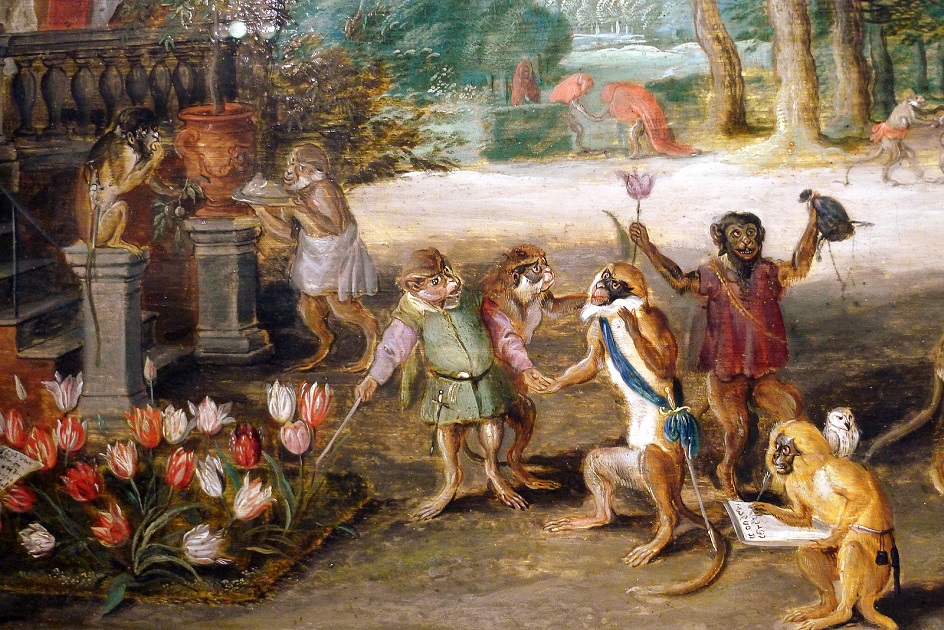Tulip mania: Classic story of a financial bubble is wrong

We all know that tulip mania was a frenzy. Everyone in the Netherlands was involved, from chimney-sweeps to aristocrats. The same tulip bulb, or rather tulip future, was traded sometimes 10 times a day. No one wanted the bulbs, only the profits – it was a phenomenon of pure greed. Tulips were sold for crazy prices – the price of houses – and fortunes were won and lost. It was the foolishness of newcomers to the market that set off the crash in February 1637. Desperate bankrupts threw themselves in canals. The government finally stepped in and ceased the trade, but not before the economy of Holland was ruined. Yes, it makes an exciting story. The trouble is, most of it is untrue.
The only woman in an around-the-world solo sailing race is in the lead
Somewhere in the Southern Pacific Ocean, Kirsten Neuschafer is alone on her boat, Minnehaha, as she tries to outmaneuver the latest storm to cross her path as she approaches Cape Horn. She's spent the past day heading north in an effort to skirt the worst of the oncoming weather. The storm is threatening wind gusts up to 55 miles per hour and seas building to 25 feet. Neuschafer is battling to win what is possibly the most challenging competition the sailing world has to offer — the Golden Globe Race. Neuschafer, the only woman competing, has left all rivals in her wake. Of the 16 entrants who departed five months ago, only four are still in the race, and for the moment at least, she's leading.

A tax revolt at The Villages ends with a 72-year-old political prisoner
The trouble began in 2019, when residents of The Villages were suddenly hit with a 25 percent hike in their property taxes. If the new taxes were intended to cover new amenities or upgrades, perhaps a hike would be worth the sacrifice. But the money was instead destined to benefit the entity known as “the family.” The Villages is owned by the Morse family, descendants of Harold Schwartz, who founded what became the community in the 1970s as a trailer park. The family owns the local newspaper, the radio station, which pipes Fox News and right-leaning updates through speakers in common areas and at pools; owns the glossy magazine; and also owns local politics.

The Indian scientist who helped invent the radio but didn't try to patent it
Jagadis Chandra Bose was born in India, came to England in the 1880s to study at University College and Cambridge, then returned to Calcutta, where he was a professor of physics. He conducted experiments that would lead him to invent a crucial component in early radio technology, but never patented it. To the contrary, he openly displayed the construction and workings of his invention at a public presentation before the Royal Institution. Bose’s biographer noted that Bose was “criticised as unpractical for making no profit from his inventions," but that it fit both his character and his conviction to seek “no personal advantage from his inventions."

The snack-cake economy: How I learned money in prison
The Fly and his brother ran the most legit store in the housing unit, if not on the entire compound, selling commissary food at a markup. Need freeze-dried coffee? Or a bag of Nilla Wafers? A legal pad? See the storeman. You could do a lot with storeman food. Crush up a bag of Nilla Wafers extra fine, pour it into a bowl, add a can of Pepsi and some hot-cocoa mix, stir in a glob of no-refrigeration-needed mayonnaise, throw it in the microwave for 13 minutes, and then, presto!, you had a cake that actually resembled a cake. Twelve-packs of Pepsi, Little Debbie snack cakes, mackerel in a mylar pouch, summer sausage: this is what holds the U.S. carceral state together.

Fears about our attention spans and focus are as old as writing itself
If you suspect that 21st-century technology has broken your brain, it will be reassuring to know that attention spans have never been what they used to be. Roman philosopher Seneca the Younger was worried about new technologies degrading his ability to focus. During the 1st century CE, he complained that ‘The multitude of books is a distraction’. This concern reappeared again and again over the next millennia. By the 12th century, the Chinese philosopher Zhu Xi saw himself living in a new age of distraction thanks to the technology of print: ‘The reason people today read sloppily is that there are a great many printed texts.’

Border collies love a good balloon game
Dogs having fun with a balloon.. 🎈 pic.twitter.com/2qQAulSCvV
— Buitengebieden (@buitengebieden) February 13, 2023



